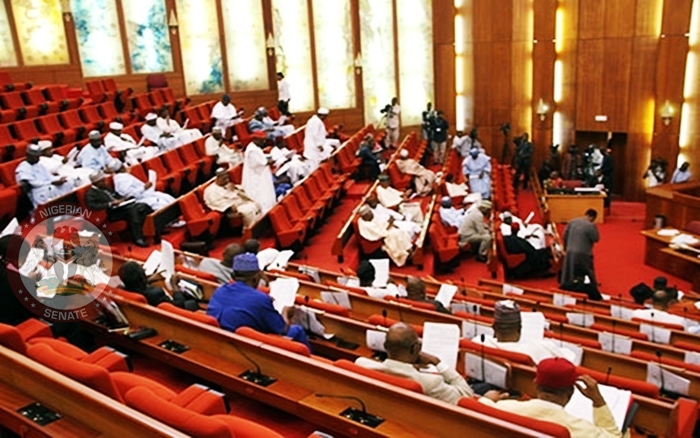The Nigerian Senate on Thursday passed the 2020 budget, following presentation of a report by the chairman of the Senate Committee on Appropriation, Barau Jibrin.
The budget was increased from N10.33 trillion as presented by President Muhammadu Buhari on October 8 to N10.6 trillion (10,594,362,364,830).
While the Senate maintained Nigeria’s daily oil production rate at 2.18 million per barrel, it, however, increased the oil benchmark to $57 per barrel against the $55 proposed by the Executive.
The committee retained the inflation rate at 10.81 per cent and the exchange rate at N305-$1 as proposed by the executive. It also retained GDP Growth Rate at 2.93 per cent as proposed.
Mr Jibrin said the committee worked harmoniously with the Executive for the processing of the bill.
In a breakdown, N560,470,827,235 was allocated for Statutory transfer, N2,725,498,930,000 for Debt service and N4,842,974,600,640 for Recurrent expenditure
Others include N2, 465,418,006,955 for Capital expenditure, N2.28 trillion for Fiscal Deficit and N1.52 per cent for Deficit/GDP.
READ ALSO: Slump of Nigeria’s foreign reserves not an issue – Emefiele
Mr Jibrin explained that the increase allows for intervention in critical areas like security, infrastructure, mines and steel development, social development, among others.
This, he said, is in line with the budget thrust of the government “which is focused on growing development and sustainable growth.”
He also said the committee adopted the 2020-2022 Medium Term Expenditure Frameworks, MTEF, and the Fiscal Strategy Paper, FSP, as approved by the National Assembly.
The Senate President, Ahmad Lawan, while admonishing the Executive on full and effective implementation of the budget, thanked his colleagues and the Executive as well for their cooperation.
Mr Lawan also acknowledged that the ninth Senate has achieved one of its key promises to return the budget cycle to January – December.
He said “we have done so much in a short while and have given the Executive everything they need; budget, finance bill, MTEF, among others.”
He further stated that the Senate will interact with Ministries, Departments and Agencies on a quarterly basis in 2020 to monitor implementation of the budget.
“We hope that with this budget passed, the Executive will ensure full implementation for the benefit of all Nigerians,” he said.






